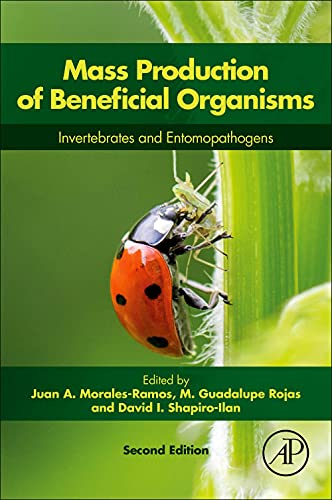

Most ebook files are in PDF format, so you can easily read them using various software such as Foxit Reader or directly on the Google Chrome browser.
Some ebook files are released by publishers in other formats such as .awz, .mobi, .epub, .fb2, etc. You may need to install specific software to read these formats on mobile/PC, such as Calibre.
Please read the tutorial at this link: https://ebookbell.com/faq
We offer FREE conversion to the popular formats you request; however, this may take some time. Therefore, right after payment, please email us, and we will try to provide the service as quickly as possible.
For some exceptional file formats or broken links (if any), please refrain from opening any disputes. Instead, email us first, and we will try to assist within a maximum of 6 hours.
EbookBell Team

5.0
30 reviewsMass Production of Beneficial Organisms: Invertebrates and Entomopathogens, Second Edition explores the latest advancements and technologies for large-scale rearing and manipulation of natural enemies while presenting ways of improving success rate, predictability of biological control procedures, and demonstrating their safe and effective use.
Organized into three sections, Parasitoids and Predators, Pathogens, and Invertebrates for Other Applications, this second edition contains important new information on production technology of predatory mites and hymenopteran parasitoids for biological control, application of insects in the food industry and production methods of insects for feed and food, and production of bumble bees for pollination. Beneficial organisms include not only insect predators and parasitoids, but also mite predators, nematodes, fungi, bacteria and viruses.
In the past two decades, tremendous advances have been achieved in developing technology for producing these organisms. Despite that and the globally growing research and interest in biological control and biotechnology applications, commercialization of these technologies is still in progress. This is an essential reference and teaching tool for researchers in developed and developing countries working to produce “natural enemies” in biological control and integrated pest management programs.
• Highlights the most advanced and current techniques for mass production of beneficial organisms and methods of evaluation and quality assessment
• Presents methods for developing artificial diets and reviews the evaluation and assurance of the quality of mass-produced arthropods
• Provides an outlook of the growing industry of insects as food and feed and describes methods for mass producing the most important insect species used as animal food and food ingredients